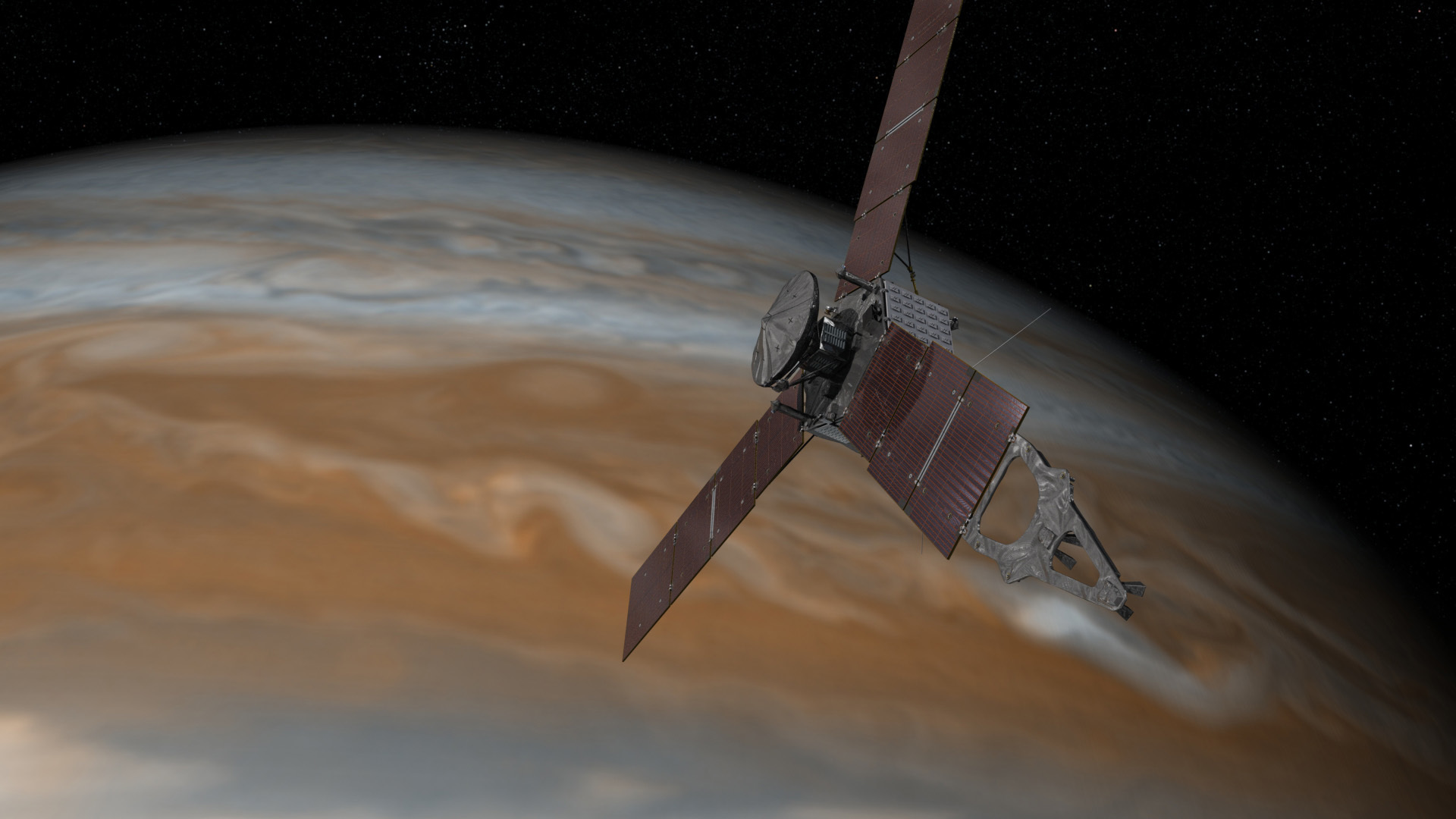![NASA's Juno mission could provide clue for formation of entire solar system [video : 86542592]](http://videos.usatoday.net/Brightcove2/29906170001/2016/06/29906170001_5010684384001_5010646250001-vs.jpg?pubId=29906170001)
![AP SPACE JOURNEY TO JUPITER A [image : 86550424]](http://www.gannett-cdn.com/-mm-/a0db1663f4f87238de6e3c5d87d12b5db253f3b8/c=328-0-1592-1080/local/-/media/2016/06/30/USATODAY/USATODAY/636028819542544777-AP-Space-Journey-To-Jupiter.jpg)
UPDATE: NASA's Juno spacecraft successfully entered Juno's orbit late Monday, entering a new phase of its mission. Stay with USA TODAY's Michael Kofsky for the latest updates.
NASA's 5-year-old mission to slip a satellite into orbit around Jupiter hangs in the balance despite great excitement at NASA for the scheduled entry late Monday.
"We’ve done everything we can. We’ve protected everything as best we can," said Scott Bolton, principal investigator of the Juno mission.
The main concern: Unknown factors surrounding radiation and space debris could affect the $1 billion spacecraft and its trajectory. "We’ve modeled it, but we’re going into unknown territory," Bolton added.
![Here#39;s the last pic @NASAJuno took prior to shutting off its instruments 5 da [oembed : 86675226] [oembed : 86675226] [oembed : 86675226] [oembed : 86675226] [oembed : 86675226] [oembed : 86675226] [oembed : 86675226] [oembed : 86675226] [oembed : 86675226] [oembed : 86675226]](/Portals/_default/Skins/PrestoLegacy/CommonCss/images/smartembed.png)
It all comes down to the wire when the satellite attempts to enter orbit from the north pole of Jupiter at 10:30 p.m. ET.
In its two-hour pass from pole to pole, Juno will encounter massive amounts of radiation, even as it avoids some of the worst the planet has to offer.
Juno's most sensitive electronics are protected with a titanium covering that prevents damage from electrons moving at the speed of light that could tear through the satellite, said Heidi Becker, a scientist working on the mission.
Debris from Jupiter's rings poses a threat because even small bits of rock can cause serious damage to the spacecraft, Bolton said. Plus, the size of the debris remains uncertain.
"We believe probability is incredibly low that we’re going to hit one, but it’s not zero," said Bolton.
The solar-powered Juno spacecraft must fire its main engines to enter orbit successfully while on battery power. The satellite will then need to turn back to face the sun after the first pass around the planet in order to keep receiving solar radiation.
Juno launched in August 2011 and will stay in orbit until February 2018. If the mission is successful, researchers at NASA hope the data can provide insight into some of the greatest unknowns about the solar system's formation.
"This is it. This is the beast we’re going after, and we're going to conquer that thing tonight, and we're going to get the answers we're all seeking about the beginning of our solar system," Bolton said.
![Aurora spotted on Jupiter as Juno probe nears [oembed : 86674394] [oembed : 86674394] [oembed : 86674394] [oembed : 86674394] [oembed : 86674394] [oembed : 86674394] [oembed : 86674394] [oembed : 86674394] [oembed : 86674394] [oembed : 86674394] [oembed : 86674394] [oembed : 86674394]](/Portals/_default/Skins/PrestoLegacy/CommonCss/images/smartembed.png)
![NASA spacecraft to enter Jupiter's orbit, provide clues of solar system's origin [oembed : 86674046] [oembed : 86674046] [oembed : 86674046] [oembed : 86674046] [oembed : 86674046] [oembed : 86674046] [oembed : 86674046] [oembed : 86674046] [oembed : 86674046] [oembed : 86674046] [oembed : 86674046] [oembed : 86674046]](/Portals/_default/Skins/PrestoLegacy/CommonCss/images/smartembed.png)


